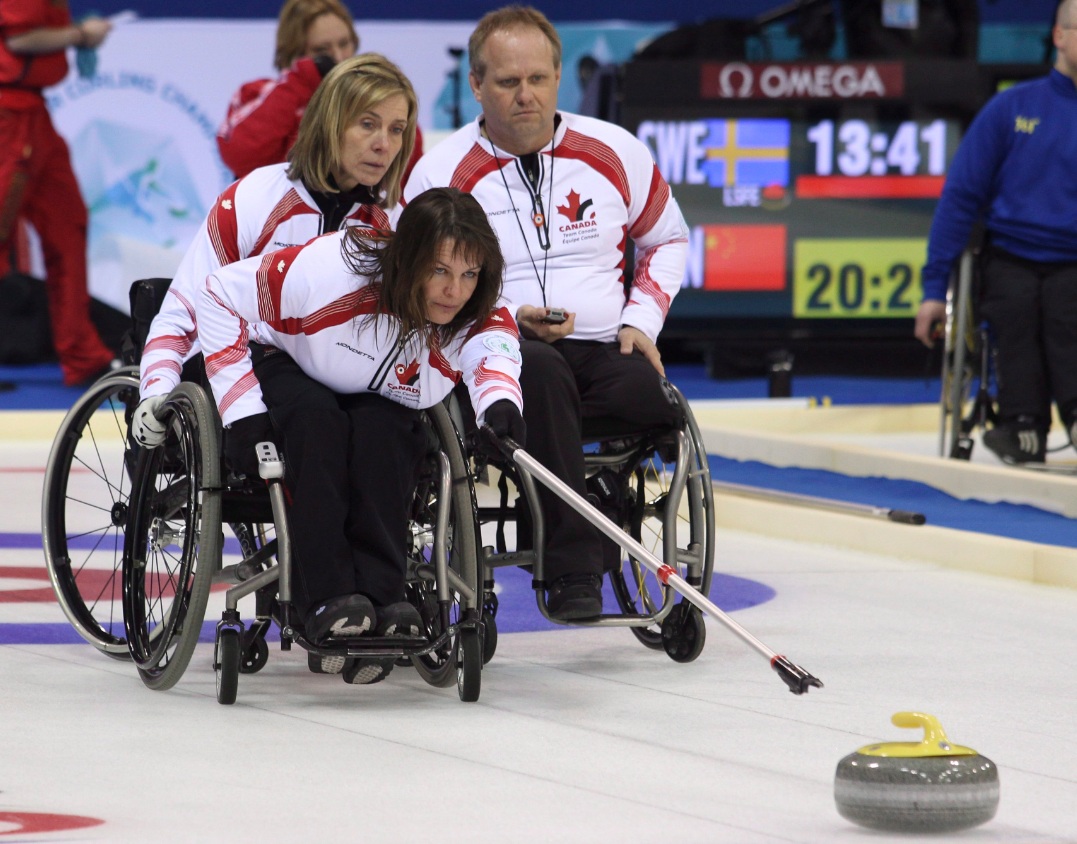Ina Forrest has her sights set on gold in Sochi.

This is the second Paralympics for the B.C. wheelchair curler, who took gold on home ice in Vancouver four years ago.
Her ambition in Sochi is just as lofty.
“We are a very strong team,” she says. “We are coming in as the reigning Paralympic champions and world champions, so we feel very confident and expect to be medal contenders.”
Forrest first got involved in wheelchair curling in 2004.
“I was shopping and I met a guy who invited me to join into one of their practices. I had some spare time, so I went ahead and tried it,” she says. “You get into competitive level very quickly, and I love the competitive atmosphere of wheelchair curling.”
Wheelchair curling was first introduced into the Paralympic program in 2006.
“Everything about the game, how it is scored and the rules is the same,” says Forrest.
The only difference is in how players deliver the rocks.
“Most people deliver with the stick on the rock. From there, the major difference is that there is no sweeping. So once we release the rock, we just have to trust that it is going to go where we want it to.”
- Joffre Lakes to close for 3 periods this year under agreement with First Nations
- ‘Why aren’t we doing more?’ White Rock on edge with killer on the loose
- B.C. carjacking victim says she doesn’t trust the ‘catch-and-release’ system
- Inquest into fatal Surrey hostage-taking recommends cameras for ERT teams
Forrest is paraplegic and has no sensation from her waist down.
“I have my quadriceps muscles, so I can straighten my legs, but that is it. Other than that, no sensation below my waist.”
Forrest was born in Fort St. John, but lives near Armstrong.
She trains at Vernon Curling Club along with her teammate Sonja Gaudet, who carried Canadian flag in the Opening Ceremony at Sochi’s Fisht Stadium Friday night.
She says getting in wheelchair curling is quite easy in B.C.
“You can just join able-bodied leagues and play that way. Down in Vancouver, there are a lot of players, so you can be on a wheelchair team, but pretty much the rest of B.C., you would have to be playing in able-bodied leagues.”
Forrest says she plays at least three games a week as part of her training.
“As a national team, we get together probably every second or third weekend because we come from all across Canada, so we have to go to a central location to train together.”
She says it is too early to look toward PyeongChang, but her Sochi goal is clear.
“We are going out there and play every game to the best of our ability. There are nine other really great teams and they will be doing the same. So you go out there to win each game.”
Canadians will be facing Russia in their second game on Saturday.
“We are prepared for a lot of noise,” laughs Forrest.
She will have her husband, two children and father-in-law cheering her on in Sochi.
“It will be great to look up in the stands and wave at them,” she says.
For the full Paralympics schedule, go here.




Comments